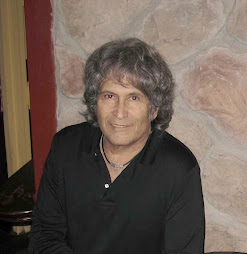Grains have become more and more a focus of nutrition these days, mainly due to gluten and it's negative effects on our bodies (though there are many other arguments against grains besides the gluten issue). I have three books at home about grains:
Going Against the Grain...Melissa Diane Smith
Dangerous Grains...Brady and Hoggan
Grain Dead...Dr. Doug Graham (Raw Foodist)
Most people start rolling their eyes if you tell them there might be some problems nutritionally with grains.
So are grains "the staff of life" or are they causing disease?
First of all, when did humans start eating them? They are not part of Primates' diet, so where and when did we learn to grow and eat them? The average time given from the past is about 10,000 years ago, in the Fertile Crescent, the Dawn of Civilization...the onset of agriculture. This is when colonies and tribes started changing from hunter-gatherers to agriculture, and formed permanent homes...and grew grains, and early fruits and vegetables , for the first time in human history. 10,000 years ago is a very short time of course. Some say, that since grains were not part of our "natural" diet, we still have not evolved to the point where we can tolerate them very well. Others say that grains are perfectly fine and are a valid nutritional part of the modern human diet.
There is much written and conjectured about the earliest cultivation of grains. The main thing we should be interested in , relative to this entire blog about nutrition, is not where and when it all happened, but is it something humans should have started eating in such vast quantities, or at all?
Dr. Andrew Weil believes we should eat whole grains,, in their natural form, such as wild rice, quinoa, barley, millet and wheat berries. He does not feel we should be eating much processed grains (flours or puffed grains). He goes on to explain that whole grains have a low GI (Glycemic index) vs. refined grains which have a high GI...and that we should cut down on all products made with flour. Other nutritionists say grains are very good foods , and some say we should eliminate them completely.
I will go into more detail about grains later on in upcoming blogs. The main reason I'm bringing them up here is for historical reasons. Since the subject was about primates' diets, then early primitive humans, then more evolved humans, then humans that exist today...it's important to note when grains came into widespread use. Human history changed when agriculture came into being. Grains played a very large role in agriculture (along with domestication of animals, storage of food, expansion of available foods due to cultivation, new products formed from plant and plant fibers and animals and their body parts)
The most common complaints we hear about grains are wheat allergy, and Celiac disease (which can be responsible for many serious ailments). But the books mentioned above, go into far more detail about many many more serious conditions the authors' believe are caused by grains. I will talk about that later.
Next blog I will go into the domestication of animals and the onset of our use of dairy...for better or for worse. (and it's pretty obvious that it's for worse!)

No comments:
Post a Comment
PLease leave a comment or question for further discussion.